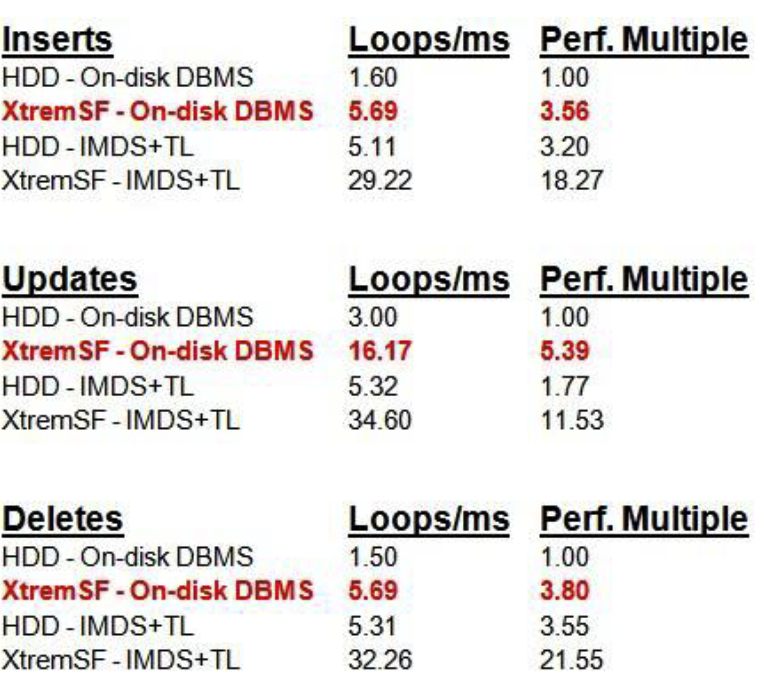McObject eXtremeDB and EMC XtremSF Server-Based PCIe Flash Card
Boost in-memory database
This is a Press Release edited by StorageNewsletter.com on May 9, 2014 at 2:42 pmMcObject LLC released lab results showcasing the higher speed and data durability attained deploying its eXtremeDB In-Memory Database System (IMDS) with EMC XtremSF server-based PCIe flash cards for transaction log storage.
The McObject benchmark tests demonstrate the speed advantage of eXtremeDB with transaction logging and XtremSF increasing along with the number of concurrent processes, delivering scalability, high throughput and the ability to leverage up-to-date multi-processor/multi-core hardware.
IMDSs eliminate the latency associated with traditional on-disk DBMSs, but some applications require a higher level of data durability (i.e. recoverability if volatile memory is disrupted). As a solution, they offer transaction logging. But critics object that logging re-introduces the storage-related latency that builds slowness into on-disk DBMSs.
McObject’s benchmark tests – described in the report, Gaining an Extreme Performance Advantage – refute this criticism. For the database operations most likely to induce latency, the IMDS with transaction logging (IMDS+TL) storing its transaction log on a HDD outperformed the conventional DBMS using HDD storage by more than 5 times (even with the disk-based DBMS employing caching to minimize I/O). In addition, gains were achieved when using XtremSF server-based PCIe flash cards to store the transaction log. The technology enabled the IMDS+TL to achieve a 2,100% speed advantage over the on-disk DBMS.

A second phase of the benchmark tested scalability by measuring throughput while adding concurrent processes to interact with the database system and its storage. EMC and McObject point to their technologies’ ability to exploit today’s multi-core CPUs as important product strengths. McObject’s tests using a traditional on-disk DBMS with EMC XtremSF technology demonstrate its capabilities in this area: with 2 processes running simultaneously, the benchmark application was able to complete 3.89 loops per millisecond; with 36 concurrent processes, this grew to 12.21 loops/ms – an increase of 314%.
When switching to the eXtremeDB IMDS with transaction logging, and using XtremSF technology to store the transaction log, the rate of throughput increase was more impressive – for a gain of 505%.














 Subscribe to our free daily newsletter
Subscribe to our free daily newsletter

